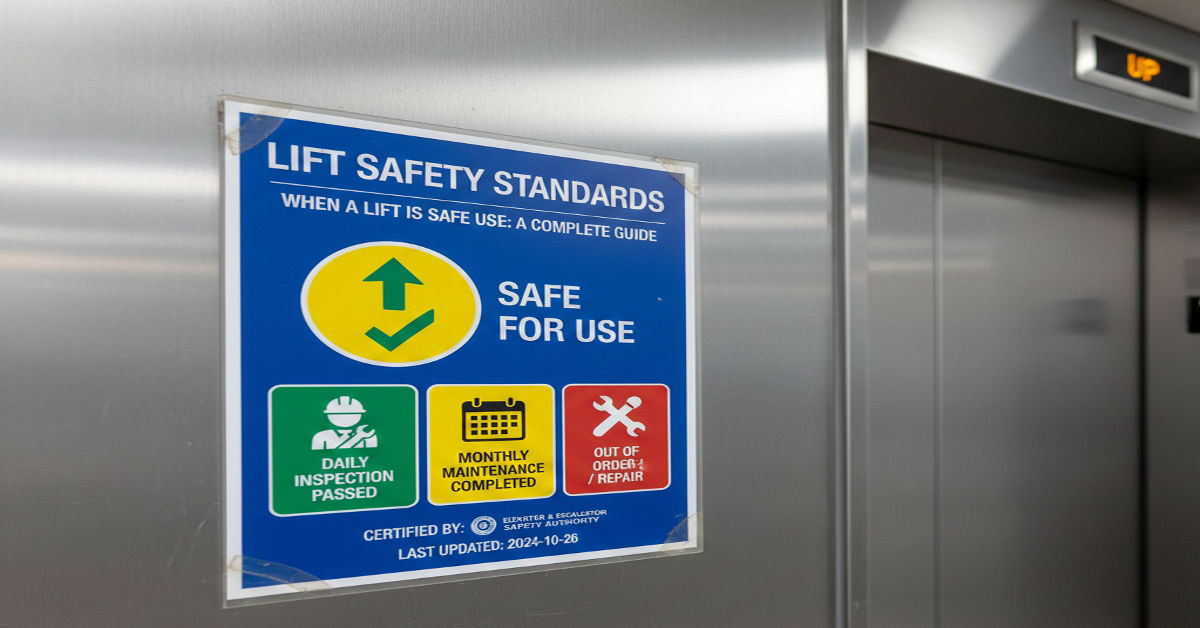For anyone searching “Movierulz HD,” the intent is clear within the first 100 words: you want to know what it is, whether it’s legal, and how to access or avoid it safely. Movierulz HD refers to a network of sites offering films and series for free, often without proper licensing. Users looking for the latest releases are drawn by convenience, but few understand the hidden costs: malware, data theft, and potential legal exposure. This article provides a full, 3 000-word exploration—written in an analytical New York Times–style—explaining what Movierulz HD is, why it spreads, what risks it poses, and which safe, ethical, and legal alternatives now exist for 2025 viewers.
The Rise of Movierulz HD
Movierulz HD emerged as a brand of immediacy—the promise of instant movies in high definition. The “HD” suffix signaled modernity and quality, giving the impression of a legitimate service. Yet, it also became synonymous with fast-changing mirror links and redirections. The frequent domain switches reflected a cat-and-mouse dynamic between operators and regulators. In essence, Movierulz HD represents not one site, but a shifting network of duplicates designed to outrun takedowns.
“Each mirror site is like a moving target; block one, and two more appear,” remarked a cybersecurity analyst.
Why People Turn to It
The popularity of Movierulz HD stems from a mixture of accessibility gaps and human psychology. People seek three things—speed, convenience, and variety. Official streaming platforms often fail on one of these fronts: subscription fees pile up, regional locks restrict content, and waiting periods frustrate fans. In that vacuum, Movierulz HD became a shortcut. For a generation accustomed to immediacy, it offered an illusion of freedom from corporate control.
Key Drivers
• High subscription fatigue across multiple OTT platforms.
• Late regional release schedules.
• Rising demand for free HD content on mobile.
• Peer recommendations on social media and messaging apps.
The Hidden Economy Behind Free Streaming
Movierulz HD’s “free” model hides a powerful advertising ecosystem. Every click, pop-up, and redirect generates ad-revenue streams. Operators sell visibility to shady ad networks that trade in user data and browser fingerprints. The economics are simple: users provide the commodity—attention—while the platform profits through volume.
“If you are not paying for the product, you are the product,” said a well-known digital-rights advocate, describing how ad-funded piracy thrives.
Legal Realities: What Viewers Overlook
Most users assume viewing is harmless because they’re not hosting or uploading. In truth, even streaming from unauthorized sources may violate copyright laws. Countries differ—some penalize hosting, others downloading—but all recognize the harm to creators and distributors. While prosecutions of individuals are rare, civil fines, ISP warnings, and content-blocking orders are increasingly common. The risk lies not just in punishment but in precedent: every illegal view legitimizes a system that erodes creative labor’s value.
The Security Dimension: When Free Isn’t Safe
Beyond legality, the larger threat is technological. Movierulz HD clones routinely carry malicious advertising and fake download prompts. Visiting such sites exposes users to drive-by malware or phishing pages. Infected devices may see browser hijacks, crypto-mining scripts, or hidden trackers that monitor keystrokes.
Common infection vectors:
• “Install player” buttons that download trojans.
• Redirect chains embedding keyloggers.
• Auto-playing pop-ups disguised as captcha checks.
• Mobile APKs repackaged with adware.
“The promise of a movie night can end with your banking details stolen,” warned an internet-security specialist.
The Illusion of HD Quality
Despite its branding, most “HD” uploads are compressed rips. Frames stutter, color grading is off, and subtitles rarely sync. Some copies come from cam-recorded theatrical screenings. The mismatch between promised and delivered quality adds another irony: viewers risk far more for a result that’s visually inferior to legitimate options.
User Experience: Between Convenience and Chaos
For casual users, Movierulz HD feels deceptively simple at first—search, click, stream. But the reality soon unravels: slow buffering, dead links, intrusive ads, and constant pop-unders. It becomes a maze that punishes curiosity with frustration. Every reload may open a dozen new tabs or phishing windows. The friction, not the films, becomes the experience.
“Free streaming is a gamble where the house always wins, but the player doesn’t realize they’re playing.”
Psychological Triggers and Social Influence
Piracy culture is sustained not merely by need but by normalization. When friends share a Movierulz HD link in a chat, it feels communal and harmless. The term gains legitimacy through repetition. Social proof lowers moral barriers; “everyone does it” becomes justification. The psychology mirrors that of any collective habit: once convenience trumps caution, risk perception collapses.
The Cultural Debate: Access vs. Ownership
The deeper conversation surrounding Movierulz HD is cultural. On one side lies the argument for access—art should be available to all regardless of income or geography. On the other stands ownership—the belief that creative work deserves compensation. The truth is not binary. Fair access and fair payment can coexist if distribution systems evolve faster.
“Piracy is a symptom, not a cause; the disease is inequitable access,” noted a cultural economist in a 2024 panel.
Table 1: Comparing Viewing Sources
| Source Type | Legal Status | Cost | Security Risk | Typical Quality | Reliability |
|---|---|---|---|---|---|
| Paid Streaming (Netflix, Disney+, etc.) | Licensed | Subscription | Low | High | Stable |
| Transactional Rental / Purchase | Licensed | Per title | Low | Very High | Very Stable |
| Free Ad-Supported Platforms | Licensed | Free + Ads | Low | Medium | Moderate |
| Movierulz HD and Mirrors | Unlicensed | Free | High | Low | Volatile |
| Torrent Downloads | Unlicensed | Free | High | Variable | Unpredictable |
Legal Alternatives in 2025
The good news is that accessibility has improved dramatically. Studios now experiment with hybrid releases and ad-supported tiers. National libraries digitize archives. Independent filmmakers release directly through social channels under Creative Commons licenses. The gap that once pushed users toward piracy is closing, slowly but visibly.
Recommended Legal Platforms
• Tubi TV / Pluto TV: free, ad-supported libraries with international rights.
• Local OTT start-ups: offer regional films at affordable monthly rates.
• Public-library streaming portals: available with library cards in many cities.
“The antidote to piracy is not punishment—it’s better service,” said a film-distribution strategist.
Regional Availability and the Role of Policy
Policies affect viewing habits more than moral campaigns do. When governments support affordable local streaming infrastructure, piracy declines. India’s regional OTT explosion, for example, demonstrates that legal, language-specific content can outperform unlicensed hubs. Encouraging fair taxation, fast release windows, and cross-platform licensing would further reduce dependency on gray markets like Movierulz HD.
How Operators Evade Enforcement
The resilience of Movierulz HD lies in decentralization. Domains move, hosting jumps across countries, and operators mask ownership through proxies. Some clones host files on third-party servers, keeping their main sites “link-only” to dodge takedowns. Blockchain-based file storage may complicate enforcement further, as data fragments scatter across nodes. Understanding this agility helps users grasp why the site seems to “never die.”
How to Protect Yourself if You’ve Visited
If curiosity or a mistaken click led you to Movierulz HD, damage control is possible.
Immediate Actions
• Disconnect from the internet if suspicious activity begins.
• Run a full antivirus and anti-malware scan.
• Remove suspicious browser extensions.
• Change passwords on major accounts.
• Monitor banking transactions for anomalies.
“Digital hygiene is like washing hands: neglect invites infection,” emphasized a cybersecurity educator.
Table 2: Risk and Response Guide
| Threat Type | Symptom | Immediate Action | Long-Term Fix |
|---|---|---|---|
| Malware Infection | Pop-ups, slow system | Run antivirus, reboot | Use real-time protection suite |
| Phishing | Fake log-in screens | Don’t enter data, close page | Enable multi-factor authentication |
| Data Harvesting | Targeted spam ads | Clear cookies, use tracker blocker | Browser privacy settings |
| Legal Notice | ISP warning | Seek legal advice | Stop visiting unlicensed sites |
The Role of Education
Public awareness remains the most effective deterrent. Teaching users how piracy economies function—how ad revenue, malware, and exploitation intertwine—transforms moral preaching into practical literacy. Schools, tech platforms, and influencers share a duty to make digital ethics part of mainstream education.
“Awareness changes behavior faster than enforcement ever can,” said an academic focusing on media literacy.
The Human Cost to the Creative Industry
Piracy’s toll extends beyond numbers. Crew members, editors, technicians—people whose names never appear on posters—lose income when unauthorized streaming diverts revenue. Independent filmmakers suffer disproportionately because even minor losses threaten sustainability. A culture that normalizes sites like Movierulz HD risks shrinking creative diversity.
The Future of Anti-Piracy Tech
Technological countermeasures evolve constantly: watermarking, AI-based takedown bots, and dynamic fingerprinting now track illicit uploads in hours rather than days. Yet enforcement alone cannot erase demand. The next frontier lies in transparent revenue models—micro-payments per view, universal licensing pools, and decentralized royalties that make compliance easier than evasion.
The Social Paradox of Free Culture
There is an undeniable philosophical appeal in “information wants to be free.” But “free” also requires someone to bear costs: servers, bandwidth, creators’ time. Sustainable openness must coexist with respect for creative labor. The solution lies not in restriction but reinvention—legal frameworks that make sharing profitable for both creators and audiences.
Practical Guide for Ethical Viewing
• Support independent creators via official channels.
• Use ad-supported free services instead of mirrors.
• Report obvious phishing domains to your local cyber-authority.
• Discuss media ethics with peers; collective awareness matters.
• Treat every “free HD” link with skepticism.
Reflection: A Mirror of Modern Consumption
Movierulz HD mirrors a modern contradiction: people value art yet often devalue access ethics. The platform’s endurance reflects collective impatience rather than criminal intent. Changing that dynamic requires industry empathy and user education—meeting audiences where they are, not shaming them for where they click.
“When convenience outpaces conscience, education must close the gap,” concluded a sociologist studying online behavior.
Final Thoughts
In the end, Movierulz HD is less a website and more a symptom of digital imbalance—between demand and access, profit and principle. Understanding it empowers users to make informed, responsible choices. Movies unite people; exploitation divides them. The next time you encounter a “free HD” link, remember that behind each stream lies a network of risks—legal, financial, and moral—that far outweigh fleeting convenience. Choosing legitimate options supports a sustainable creative future where both artists and audiences thrive safely.
Frequently Asked Questions
1. What exactly is Movierulz HD?
It’s an unlicensed network of streaming and download sites that distribute movies and TV shows, usually infringing copyright.
2. Is watching from it illegal?
Yes, in most jurisdictions; even viewing without downloading may breach copyright or related laws.
3. What are the personal risks?
Malware infections, identity theft, data loss, and legal exposure.
4. Are there safe free options?
Yes—use legitimate, ad-supported platforms offering licensed libraries.
5. How can I help reduce piracy?
Support accessible legal platforms, advocate fair pricing, and share awareness about digital safety.















